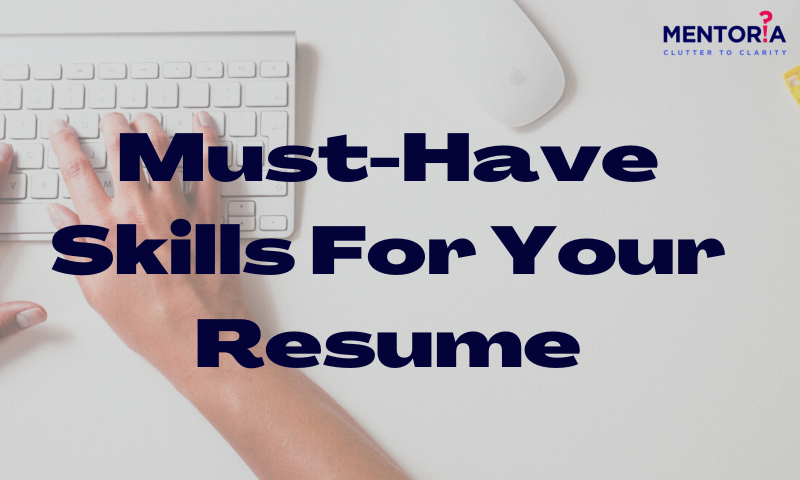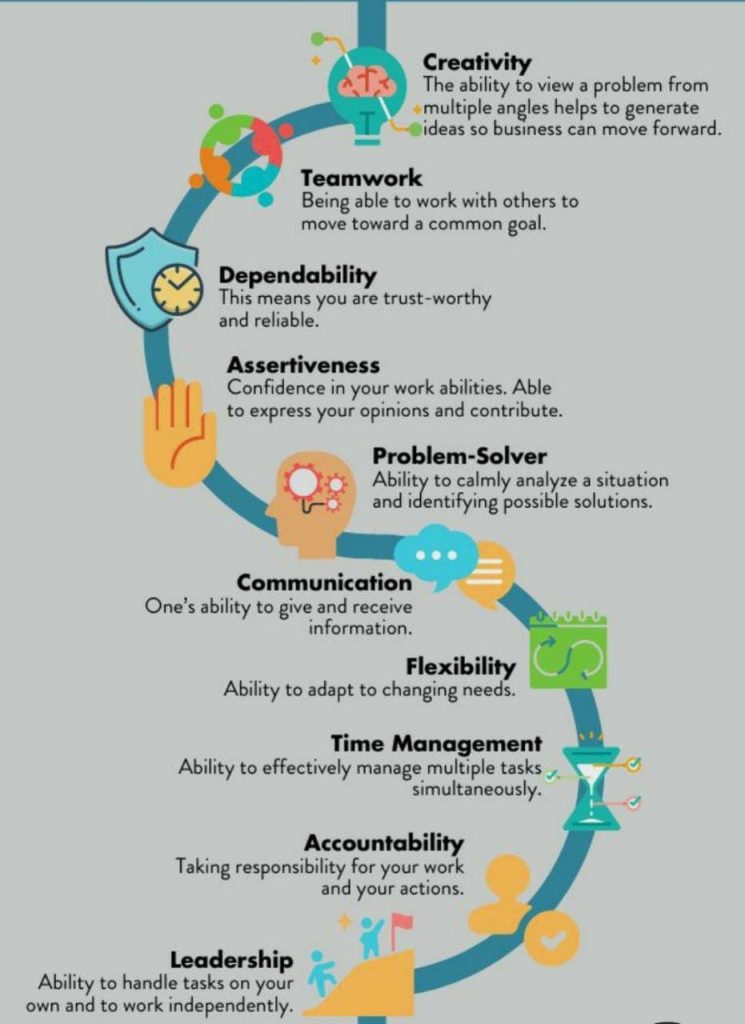Which Must-Have Skills Should You Put on Your Resume?

Waiting to graduate to begin working on your resume? Let me let you in on a little secret – you’re going to be too late. Be it internships, first jobs or even some college applications, you’re going to need a resume for your applications. Your resume is your first ever introduction of you to someone who has no idea who you are. An introduction to someone who would be deciding whether or not you’re a good fit for their institution or organisation based on the resume you’ve shared with them. Which means this one or two page document is going to make your first impression for you. And it needs to make a good enough impression for the viewer to want to know you better.
Because you don’t want to burden the hiring manager with a novel about your life, resumes are important. They provide your job story and your selling points, which may be less dramatic and less intriguing, in no more than three pages. However, this doesn’t have to be boring or an alien experience. The interview is what eventually secures you the job. However, a good resume is what secures you the interview.
So how do you make this document an absolute stunner? Which bits should you include and which ones should you leave out? There’s tons to know about building the right resume, but we’re going to focus on one key aspect – skills!
You’ve heard the word ‘skills’ thrown around time and again. If you’ve been reading the news, you probably already know that one of the biggest hurdles for any prospective employee is a ‘skill gap’. Employers feel like people just aren’t skilled enough to be hired. But which skills are they talking about? And how do you ensure they’re standing proud in your resume? Let’s find out!
First, Let’s talk about skills!
If you’re unsure of the skills you want to share, think about your prior experiences! What competition did you win? Where did you excel? What felt like an achievement to you? What do your peers say you are good at? Tell them about your knowledge and abilities. Note them down!

You are already aware of the recruiters’ keen interest in your skill set. You might also be surprised to learn that employers today value both hard and soft skills when hiring employees. This means that while considering the talents to put on your resume, it’s crucial to understand what is relevant to the position. Any job-related abilities you provide should be ones you truly possess. It’s not worth the risk to make exaggerated statements or distort the truth. Let’s see what soft and hard skills are!
Hard skills, what do they mean?
Hard skills, often known as measurable abilities, range from proficiency with Photoshop to understanding of emergency medical procedures. Through your education, training, certifications, and work experience, you can acquire hard skills. Hard skills that are particular to your field should be listed on your resume to help you stand out as a qualified applicant.

Give examples of accomplishments and responsibilities that demonstrate your skills in the employment history section when referring to your professional hard skills. Here are some examples of hard skills:
- Graphic design
- Foreign languages
- Copywriting
- Programming languages
- Editing videos
Computer skills are a must across all industries on the modern employment market. If the job posting calls for specifics or you’re looking for office employment, make sure to list them on your resume. Now, for instance if you are applying to a content writing job, you need good typing speed, copywriting skills, research abilities, and skills like that. A certification course is the best option to upskill if you require special abilities for a particular profession! A certification can help you advance in your current position and provide you an advantage over competing job prospects.

Contrary to popular opinion, having only hard skills won’t help you land the job. The truth is that if you want your Resume to be effective, you must demonstrate a strong blend of hard talents and soft skills. Let’s learn about soft skills.
What are Soft skills?
Soft skills, often known as interpersonal skills, are your traits. They may relate to the capacity to function effectively under pressure, communicate clearly, or get along with others, among other things. Soft skills can be acquired through life experiences or they might be personality traits. Your soft skills will be just as important to your success, whether you’re a waitress in a restaurant or a powerful CEO.

But which soft skills are important for YOUR profession, you might be wondering? And on which of those should you concentrate? Soft skills include things like:
- Communication
- Collaboration/Teamwork
- Initiative
- Problem-solving
- Adaptability
- Empathy
- Time Management
You need to figure out which skills are relevant for the job you are applying for and then mention them accordingly. For example: To realise the client’s vision, a designer needs to be creative, pay close attention to detail, be a good listener, and be receptive to criticism. The top soft skills for any designer are verbal communication, creativity, and attention to detail. You should also support those soft abilities with experiences; you can’t just claim to be a great leader if your resume contains no evidence of this. It’s simpler than you might think to customise your soft skills to the position; all you need to do is use the job description as a cheat sheet.
Now let’s see how to add these skills to your resume:
How to list your skills?
Your resume’s objective is to persuade the hiring manager or recruiter that you are the ideal candidate for the position and will contribute significantly to their team. You might demonstrate this by giving a real-life example like: “Successfully managed six tasks across 3 different teams throughout the first half of 2018 and delivered all items by the deadlines” if you include the abilities “project management” and “multitasking.”
Carefully select each skill and arrange your list of them. Adaptability is a talent that you should highlight on your resume if the job description specifies that candidates must adjust to constantly changing environments. You can easily distinguish yourself from the competition by being aware of the kind of candidate an employer is seeking and finding links to your own strengths. The company’s website also has a wealth of information. A decent place to start is usually the About Us page.

While many job applicants may highlight their skills in a separate section of their resume, it’s also crucial to mention them in the highlights of each of your past positions. Here is where you can add more context and specific examples to your talents section to boost it.
It’s crucial to structure your resume’s information in a way that makes it clear and simple to read. Majority of people opt to organise their skills using bullet points. Longer lists become two or three columns, whereas shorter lists frequently end up in a single column. You can arrange them alphabetically, logically, or according to your level of experience.
Be Skill Ready And #CareerReady
We wish you luck in creating the ideal resume, mention the right skills and get the position you’ve been eyeing for! Enjoy your job hunt! If you still have any doubts about what skills to mention and how to find your skills, you can talk to experts at Mentoria!
Kick-start your career discovery journey with Mentoria & be sure to find the right career fit for you. Our 4-step career guidance solution, helps us find the right career fit for you from 3 streams, 850+ courses & 12,000+ careers.






